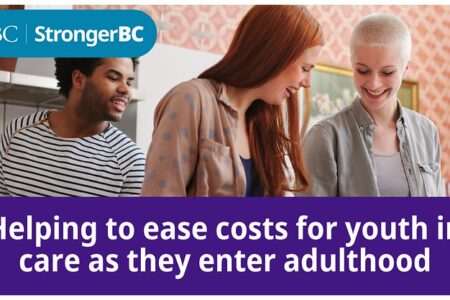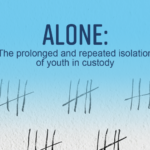COMMENTARY - Uninspired and Undecided
Driving back to Rossland from Castlegar in the warm sunshine, windows down and the new smell of life returning to the flora world, I found my relaxing drive home interrupted by a conversation on CBC radio. I’d been only vaguely listening, but now two politicians were shouting over one another. My attention piqued, I closed the window and listened closer. While I can’t recall the actual folks involved, it’s of little importance as it could have been any two political candidates from any part of the province or country.
Fascinating in its lack of listenable content and the devolution of two surely intelligent men to the level of kindergarten prattlers, this “interview” or “debate” got me thinking about the election and voter turnout as a whole.
Through a series of questions asked individually to both an NDP and a Liberal candidate, all I heard was string of ten to fifteen second responses about why we shouldn’t vote for their rivals followed by a talking over each other match that would have to be reined in by the interviewer.
After five minutes of listening to this nonsense, I asked myself, “What exactly did I just learn here about these two candidates?” Quite simply, all I picked up was that, according to one, I should not vote for the NDP and, according to the other, I should note vote for the Liberal. Beyond that, neither one of them sounded too good.
The next segment of the show, also with two politician guests, (one NDP and one Liberal) had the two agreeing with each other that voter turnout was more important in this election than in any before (Do they not say that every time?) and that new methods and communication channels are needed to reach people to get them out and voting. Maybe it was remarkable timing or maybe the radio show’s producer had a secret behind-the-scenes motive to lead the listener to the same thoughts these two segments led me to.
Asking the question to two politicians about why voter turnout has been low and shrinking for years they both agreed the best way to fix it was by using new channels such as Facebook to get their message out; both put the blame on the voters for not being engaged. This after five minutes of political bickering, of two candidates talking over one another, neither of whom seemed to have an idea of their own beyond their respective party campaign manuals, and neither offering a reason why we should vote for them.
While I have no exact statistics to attach to my argument, I would suspect that a graph could be drawn to show that voter turnout tends to have fallen in step with the rise of attack ads and the like.
Quite simply, if during an election campaign, both sides are continually telling us ‘don’t vote for this party because blah blah blah, and don’t vote for that party because of blah blah blah’, then it shocks me that anyone can be surprised when people don’t vote. Is putting the “Don’t vote for…” ads and campaigns onto a Facebook page, a twitter account, or into a webcast going to do anything to engage more people in the process? Or will it just catch new segments of the population, spreading the ‘don’t vote for’ messaging to a whole new audience and disenfranchising them?
It seems quite clear that spreading the broadcast net of negative messaging wider only begets more negativity. I would wager that the way political parties and stakeholders are getting their message out is not the issue, and that the real issue is the message itself. I’ve yet to meet anyone who has said anything similar to, “You know I really wanted to vote in the election, but I just couldn’t find anything out about it.” On the other hand, I could well understand if many people say or feel that they wanted to vote in the election but they couldn’t find anything reasons to vote FOR a candidate as opposed to only hearing why NOT to vote for someone else.
To draw an analogy to the American auto industry, we keep hearing them ask for billions of dollars to restructure their organizations to keep them viable when the real issue is not how their boardrooms and finances are structured but the fact that they aren’t selling any cars. It’s not the way you are selling cars to people that doesn’t work, it’s that the cars you’re selling aren’t what the people want. It’s not the way the politicians are communicating with us that keeps us disengaged, it’s that the message they’re selling us isn’t the message we want to buy. At best we’re voting for the lesser of several evils, at worst the people just stop voting entirely. In a world where party policies overlap more than they differentiate it would seem the greatest opportunity to sweep into power or achieve that desired majority would be to take the bold new route of inspiring me with your message and not scaring me from your opponent. I’m no election or campaign strategist, but for my two cents that sounds like a good place to get started.
I often find myself talking back to election commercials and politician’s speeches. I had just been having a discussion with a friend about the fact that the whole BC Liberal energy plan and the IPP / BC hydro issue made me not want to vote for the Liberals but that I haven’t heard a better alternative from any other side. Just after that discussion, the latest Carole James ad came on and mentioned two or three reasons why Gordon Campbell is evil before closing with a picture of Carole and the NDP logo. Immediately, I asked the commercial (which had now changed to Ryan Seacrest who sadly couldn’t answer my question either) “But what are YOU going to do!?” Sure, I’m leaning away from the Liberals but tell me what YOU would do.
So here I remain, undecided, uninspired and, to be honest, thinking more about Mats Sundin’s groin as the biggest issue facing BC right now than any upcoming election. I’ve got a few reasons why I wouldn’t vote for the Liberals, a few reasons why I wouldn’t vote NDP either and no reasons on the positive of why I SHOULD vote at all. I would love nothing more than for someone, maybe one of the fringe parties, to shake things up, but someone, maybe more than one or all of them if I could really dream, capture the hearts and imaginations of the voting world with some legitimate ideas of their own. I would love someone to tell me ‘this is why you should vote for me’, and engage me so wholly with their own thoughts and ideas that they don’t need to waste their precious media time even mentioning the other parties. Paint me a picture of the BC that I want to see and tell me the realistic things you’ll do to get us there and you’ll get my vote. On the other hand, I’ll never be inspired to vote based on what I don’t want to see, and who I don’t want to lead the province.
The moral of this rant, and no disrespect to Facebook, is that the all-Canadian saying, “The medium is the message,” does not apply in the election world and may need to be reversed to the message becoming the medium. Inspire me with the message, not with who has the coolest, most “cutting edge” way of getting the same old message out. Unless of course we go to a new election model where whichever party has the most friends on Facebook wins.
Maybe the answer to increasing voter turnout is so simple and clear that it doesn’t even get considered? Could it possibly be that if we stopped telling people who not to vote for and rather said this is what I’m going to do and this is why you should vote for me than people would vote more? Hard to say, but I can say for sure that in my particular situation it would certainly help.
Uninspired and undecided,























